Margaret Cho: “We Need Comedy to Survive”
Margaret Cho returns to the stage with her 'Live & Livid' tour and an urgent message for America: We have to do something.

Margaret Cho — comedian, actor, musician, advocate, entrepreneur, artist — has added a new role to her impressive résumé, and in our laugh-filled Zoom chat, she lights up talking about it.
“I’m also a gamer,” Cho reveals, adding with a self-deprecating smile, “I’m really bad at the games.”
Strapping on her VR headset and diving into a game is one way Cho, who is celebrating 40 years as a standup comic with her new Live & Livid Tour, stays connected to younger perspectives, even if she’s just watching other people play. “I’m like, ‘How do you even figure this out?'” she says. “But that’s why these young people are so smart, they know what they’re doing.”
Clearly, Margaret Cho knows what she’s doing, too. She’s been a household name in comedy and television since starring in her groundbreaking ’90s sitcom All-American Girl.
She’s headlined solo standup tours and TV specials, appeared in more than 40 films from Face/Off to Fire Island, recorded Grammy-nominated albums of comedy and music, guested on countless shows, performed on countless stages, all while proudly challenging the world’s notions of sexuality and gender, and advocating for the civil rights of marginalized people, particularly women, Asian Americans, and the LGBTQ community.
As her friend and Fire Island co-star Joel Kim Booster told Metro Weekly in June, “[Margaret Cho] changed my life. And that’s not an exaggeration. I can draw a straight line from All-American Girl…to Fire Island. I was very young when that show came out and it really blew my world wide open in terms of what I thought was possible for myself.”
Cho doesn’t take for granted the love she receives from younger comics and co-stars like Booster, Bowen Yang, and Matt Rogers.
“I’m so appreciative of the new generation of queer comedians who are really just doing amazing work,” she says. “That to me is really important, and that’s a really exciting thing that they look to me as inspiring them. I think that’s my greatest achievement, to inspire all of these incredible comedians to do what they want to do.”
Keeping herself inspired is also key, hence charting new frontiers through gaming, and maintaining a presence on TikTok. At 54, Cho has reached a point in her legendary career where she might pop up on any screen, say, as a pretty, pink-tinted Poodle singing a truly touching version of Cyndi Lauper’s “Time After Time” on season one of The Masked Singer, or on HBO’s Hacks, playing herself finishing a gig on a lesbian cruise.
The Hacks appearance was shot during the tail end of the pandemic slowdown, perhaps the only time in the past 40 years that Cho took a significant break from the road to find some peace at home in Los Angeles.
“Which was interesting, because I was like, ‘Oh, well I never really spent as much time in my home,'” Cho recalls. “I built this home to live in, but I’d been on the road for so much of the time. So this was the first time ever that I actually put down some roots in my own living space and that really was great. It was a good refresh, but I’m looking forward to going back out on the road again.”
And on her Live & Livid Tour, Cho will have plenty to keep her audiences inspired, too. As she wrote in a note posted to her fans, “I will be radiating rage about homophobia, sexism, racism and the fight to stay alive in a culture that is killing us daily.”
Let the games begin.

METRO WEEKLY: I want to start with The Masked Singer, because I was just in a sort of rabbit hole watching those videos. It seems like a totally insane show. What was that like?
MARGARET CHO: It was really fun. I loved getting to work with vocal coaches and also having the mask, because mine was so enclosed, that the way that the sound kind of reflected off of the snout was very different from hearing my own voice just in the room.
So it was really interesting, and I really enjoyed the costuming process. I was on the first season, so it was before anybody knew what the show was. So I think it was probably a lot easier to keep the people who were under the masks a little bit more secret. Now it’s such a big deal, but back then nobody knew. It was a very big show in other countries, but not here yet. So it was really cool. I really loved it, and I would love to go back as a judge or a guest judge or whatever. Super fun.
MW: The reveal was really funny. Also, I enjoyed your “Time After Time,” and I was cracking up at Jenny McCarthy saying, “Well, she looks really fit. Maybe it’s Jillian Michaels.” Do you hear these crazy guesses when you’re up there?
CHO: It’s so funny, I love that. It’s so far out of field, but you also just have no idea, too. It’s really hard to figure out who this person is out of context. So it’s testing your pop culture knowledge. They’re trying to guide you with these clues, and it’s very… I mean, even people you know well, like Ken Jeong — who is an old friend of mine for thirtysomething years and I have worked with quite extensively — not to know was really funny.
MW: So you’re the third Fire Island cast member I’ve interviewed for our Metro Weekly covers. I talked to Joel and Matt, but Matt before Fire Island, a movie that I really enjoyed. It’s a place that I really enjoy. Had you vacationed there before the movie?
CHO: Yes. I’ve been vacationing in Fire Island since 2008, so it’s a really important place for me, just as a person, as a gay.
I am more of a Provincetown lady, however. I’ve been going to Provincetown since 1986. And the people are different. Provincetown is a lot more women, a lot more of the older generation than Fire Island. Although, Fire Island, now, it’s more diverse than it used to be. But yeah, I really love it and I love that we get to play with the things that happen there in the film, and it’s just a beautiful movie.
MW: How do you think the lesbian version of that movie might differ from the one Joel Kim Booster made?
CHO: Well, there are probably a lot of beach volleyball fights, arguments about rules and regulations, and standards and practice, and rule of play in the beach volleyball. I think that there would be a lot more competitive stuff, a lot of drama with exes, a lot of exes trying to co-parent. There would be a lot of that. So I think that there would be just a lot of layers, more coping with family stuff, I think. But yeah, [it’d] be very much a rich world that we need more movies about, I think.

MW: Pre-Fire Island, how did you first come to know of Joel and Bowen?
CHO: Joel and Bowen, I am a fan of theirs. I had done Bowen’s podcast Las Culturistas a long time ago, and — I’m not exactly sure how we all met, it’s probably just through comedy, but the world of Asian queer standup comedy is pretty small, too, speaking of insular. It’s exciting for me because those guys are so smart and so funny and really represent the new generation of comedy and Asian American queer comedy. So they’re very special, and I’m really grateful for their interest in working with me and we have a really good time when we hang out.
MW: Your role in the movie is as a sort of den mother and spiritual guide. Is that anything like a reflection of your relationship with these guys?
CHO: I think so. Also, they take care of themselves very well. These are really exceptionally talented men who are doing incredible work. They’re fully grown, so they don’t need a mother. But I try to be mother as much as I can.
MW: Somewhere else that I was really happy to see you pop up was on Hacks, which was a brief moment, but it was so perfect in setting that show in a realistic world. You — actual you — were coming off of performing on a lesbian cruise. Have you performed many lesbian cruises, and what can you report? What’s the fun thing about them? Because I haven’t been on one.
CHO: Lesbians, they love whale watching. They love to look out the side of the boat, and look at all of the marine mammals. I love it. Most lesbians love it.
MW: Who doesn’t?
CHO: We all love it. And so, yes, I love a lesbian cruise. Every time I’ve been to a tropical location, it’s been a lesbian takeover of a resort, which is like a cruise, but on land, which sometimes I like because I get super seasick. But a lesbian cruise is also really special, and a really, really fun thing.
I’ve done a lot more gay cruises for men, oddly, but they’re both really great things because you’re sort of in this little universe that is totally gay, which is so spectacular. That’s one of the great things about Provincetown and Fire Island — when you get to be in a place that’s your own community, your whole world, it’s wonderful.

MW: One of the jokes of that Hacks episode was seeing Deborah Vance, a straight person, try to, I don’t know, faux-lesbian her way into fitting in. Do you see lots of straight people in that scenario?
CHO: Absolutely. I mean, because it’s one of those things where if you’re having an entertainer who has a big gay following, it’s always welcome. It’s like we’re all family. If you are in the queer community, your sexuality doesn’t always factor in because of course we have a lot of allies, which is part of the LGBTQIA community, so that counts for sure.
MW: Have you watched a lot of Hacks? How much do you think it rings true to showbiz, standup, touring?
CHO: So true. So spot on. It’s such a great show, because it really is very familiar, and Jean Smart does a great job of playing a comedian, which is actually very hard to do. As Deborah Vance, Jean Smart does it so seamlessly, which is just incredible, her acting ability, but also she’s just got those chops. She’s really a special performer.
So I really appreciate that show, and it reminds me a little bit of Joan Rivers, but it’s also an entire generation of women comedians — whether that’s Phyllis Diller or a lot of the women that you would see, that you don’t necessarily know their names, they’re not household names, but you would see from television from the ’80s, who are out there doing standup, which I really appreciate.
MW: I grew up watching comedy specials, the Elayne Booslers and the Carol Leifers and Rita Rudners, all those people.
CHO: Yeah!
MW: I also thought that something about that character, Deborah Vance, is that we can recognize her not only because Jean Smart does such a great job playing her, but because Joan Rivers and Phyllis Diller have been in the world. Do you think that they get enough credit as pioneers, not just from women, obviously, but from male comedians? They opened doors for everybody, Joan and Phyllis and people like that.
CHO: They really did. I don’t know if they’re acknowledged as much as I appreciate them, and I appreciate them more of, maybe on a personal level. And somebody like Carol Leifer, who’s a friend of mine, definitely I really appreciate as a trailblazer, and Elayne, and, of course, Rita. All of them are really incredible in forging the landscape for women comedians out there.
MW: As the tour flyer says, you’re celebrating forty years of standup, which seems impossible — like how? You started in elementary school, right?
CHO: Junior high! So just out of elementary school. I mean, I always knew I wanted to be a comedian, and I didn’t want to be a child anymore. I really wanted some agency over my life. So that just seemed like the right choice and I’m glad I went for it.

MW: What do you consider some of the highlights of forty years of entertainment?
CHO: I think the way that I can still get out there and perform. I really loved doing the big True Colors tour [in 2007]. So I got to run this sort of big queer rock and roll festival that was traveling, just headed by all of these great women, like Cyndi Lauper and Debbie Harry and The B-52s and Joan Jett. That to me was really, really special. So that was one of the great fun things. But, ultimately, it’s just the ability to continue and to persevere, to see how we have shifted and grown as a queer community, as an Asian American community, as people who are from marginalized communities who are able to go out there and work within the mainstream atmosphere of entertainment. It’s really amazing where we’ve gone.
MW: To that point, being mainstream while also maintaining street cred as a real truth-telling queer artist — I think it must be hard in a business where everybody is always having to sell themselves. So how do you maintain some truth to yourself and to your fans?
CHO: Well, I think comedy is a really democratizing field because you are really tested every time you perform. There’s only so far you can go. Whereas I think singers can play the hits, comedians never have that luxury. So we always have to be able to be current and relevant and reinvent. So that’s part of the magic of standup comedy, but it’s also the way that the world is changing, we have to stay current with that too.
I’m very active on TikTok, and I’m also a gamer, so that to me is a really new frontier, of being in this giant headset. It connects me to younger perspectives, newer technologies, and that, I think, keeps me young and on top of it. I’m trying to make sure that I can stay with it.
MW: What are your games of choice?
CHO: Well, I played BONELAB. I don’t understand it. I have only gotten the frying pan. I do a lot of the workouts on there. So I do all of the supernatural thing. I like Beat Saber, so I’ll do Beat Saber forever. To me, it’s just so funny and ridiculous. I mean, my reference for video games is Atari, so this is all very new.
MW: Yeah, I sort of stopped after the first Nintendo system. It’s a whole other bubble.
CHO: There’s so much. Also just to be able to watch things. I just did the It Follows experience, where you get to go down into this sewer and Pennywise is in there, it’s in 3D. It’s so interesting.
MW: That sounds also maybe a little scary.
CHO: It’s super scary. [Laughs.]
MW: You say that comedians can’t play the hits, but aren’t there aren’t some old reliables that you can always pull out?
CHO: Well, yeah, you can, definitely, but you sort of have to find a new way of doing it. I always talk about my mother in my standup comedy, and that’s kind of like what would be the closest thing to a hit. But it’s also new stories and new situations and new events and new things that I want to share, or my mother in the midst of COVID-19, which is right now what I’m talking about in the show.
So this thing of evolution in comedy has to happen. There is sort of an idea of, okay, there are things that people are known for and that you’ll be able to rely on that. But when you hear a joke, in a way, you can only react to it once in the same fashion. So you have to reimagine it when you go and retell some of these stories or these ideas.
MW: This isn’t a debate, per se, but we can also watch a recorded show and anticipate the same joke and laugh at it the same every single time.
CHO: I agree. Then it becomes almost like music. To me, then it becomes a very rewarding experience, like when you know the words to a song. So then it sort of transforms in our mind as a really beautiful, comforting thing. I love that too.
MW: Has the vibe of who comes out to see you live changed or evolved or stayed pretty much the same over these forty years?
CHO: It’s really evolved. It’s really broad. What’s really the same is that everybody’s different, very different and varied communities. But what’s great is a lot of the same people come over and over. So I’ve been able to make friends with fans over the last forty years, which is really, really amazing. We’ve grown up together and I really treasure that.
MW: Now you’re back out on tour. What’s something that you always have to have with you on tour?
CHO: I always have to have my saline, I have to have my Neti pot. I have a carpal tunnel sleeping arm thing. [Laughs.] I have a cast, and I can’t sleep until I’m like fisting this piece of foam. It might be from fisting, I don’t know why, but I have a really bad wrist. So, those are the things, nothing fun, nothing like skincare related. It’s all nasal and carpal tunnel.

MW: So let’s talk about Live & Livid, which, according to the promo is “radiating rage about homophobia, sexism, racism, and the fight to stay alive in a culture that’s killing us daily.” I love that. And it’s billed as a chance to push back against the craziness, which it feels that we don’t have much power to do. How do you feel right now about our power to push back against the craziness?
CHO: Well, all we have is a sense of humor in order to cope with it, which actually says a lot. I think that the reason that the right wing wants to attack drag queens is that they want to attack where we laugh. They want to attack our joy and the comfort that we have in our joy. Because drag queens have really helped us survive.
Drag queens helped us survive the AIDS pandemic, through laughter, through humor, through dark humor, through gallows humor — we needed it because we were surrounded by death. So if we can overcome that, we can overcome anything. So this is a really important thing. That’s why we have to protect drag queens and protect the nature of what drag means, which extends to comedy as well.
And comedy is really about the unexpected breath that you take, which ensures that you’ll live one more minute or whatever. That to me is a really important thing. We need comedy to survive. I think that’s the one thing that we can do, is laugh.
MW: In terms of people who really need it, I see that you are making many stops in Florida, which seems necessary and brave. What’s your approach? What are you thinking about Florida?
CHO: Well, it’s so gay there. My experience of Florida is so extremely gay, whether that’s Miami, like South Beach. [Laughs.] How do you not say gay? You don’t say gay? All you say is gay! It’s, to me, a very strange place, where it’s also conservative. I don’t think it is really conservative. It’s just this weird agenda that’s pushed forth by DeSantis, and it’s not right. To me, it’s important to just go where these negative messages about who we are, are being spread. I want to combat that.

MW: That’s, I think, the brave part, because a lot of people would go in the other direction. As far as what we see here in D.C., for example, this fraudulent congressman who is just going on about his business and it seems like nothing can happen. Do you think, as an activist, that probably a lot of people get away with stuff because everybody’s like, “Oh well somebody else will take care of it,” and we’re all waiting for somebody else to take care of something?
CHO: Yeah. And it’s not going to happen that way. We have to actually take up our own causes and fight for our lives. We’re in a fight for our lives. And George Santos is, to me, it’s like, “How did this person even get into office?” And then you have to question why the right has snapped him up, why he’s like Marjorie Taylor Green’s bestie all of a sudden.
And you realize they’re all liars, they’re all tricksters, and they’re just trying to sell their own agenda as opposed to a real political agenda. They’re just trying to stir up things that aren’t really part of their belief system, I don’t think. I mean, I don’t think George Santos has a belief system other than to promote himself any way that he can, including a million lies every time. It’s like news if he tells the truth. I don’t think he’s said one true thing at all.
MW: It’s sad, it’s enough to make us all livid. So you’re starting in Ohio, right?
CHO: I’m not sure when I go to Ohio. I start in Vancouver, and then I’m going to Telluride, how nice, and then I’m going to Arizona, and then I’ll be in D.C. after that.

MW: You’re going to see a lot of America. What’s your message for America? Because you’re going to be face-to-face.
CHO: We have to do something. We have to do something. It’s like we’re dealing with this war on trans lives, where they really want to just eliminate the trans community and it’s not going to happen. It’s not going to happen. We can’t allow that to happen. We must protect trans lives. We have to protect drag queens. We have to protect the children going to drag shows! We have to protect our lives. We have more mass shootings than days. There’s so many things to talk about and to fight against: racism, homophobia, sexism, it’s all there. So we need to feel empowered by being together and fighting against that through a sense of hope, through laughter.
MW: Speaking of which, where do you find the hope to keep fighting and keep being funny?
CHO: I think I just find it in the people fighting back. I find it in people going for counter-protests that are protecting these drag shows. That’s, to me, really inspiring. I find it in the stories that we get to tell about our communities and what we’ve overcome. I find inspiration everywhere.
Margaret Cho: Live & Livid blazes into D.C. on Friday, March 10, at the Warner Theatre, 513 13th St. NW. Tickets are $39.50 to $49.50. The tour continues with stops including Hampton, Va. (3/11), Boston (4/13), Ft. Lauderdale (5/18), San Francisco (6/2), Portland (6/3), Seattle (6/4), Asheville, N.C. (6/22), and Atlanta (6/24). Visit www.margaretcho.com.
Follow Margaret Cho on Twitter at @margaretcho.
Support Metro Weekly’s Journalism
These are challenging times for news organizations. And yet it’s crucial we stay active and provide vital resources and information to both our local readers and the world. So won’t you please take a moment and consider supporting Metro Weekly with a membership? For as little as $5 a month, you can help ensure Metro Weekly magazine and MetroWeekly.com remain free, viable resources as we provide the best, most diverse, culturally-resonant LGBTQ coverage in both the D.C. region and around the world. Memberships come with exclusive perks and discounts, your own personal digital delivery of each week’s magazine (and an archive), access to our Member's Lounge when it launches this fall, and exclusive members-only items like Metro Weekly Membership Mugs and Tote Bags! Check out all our membership levels here and please join us today!





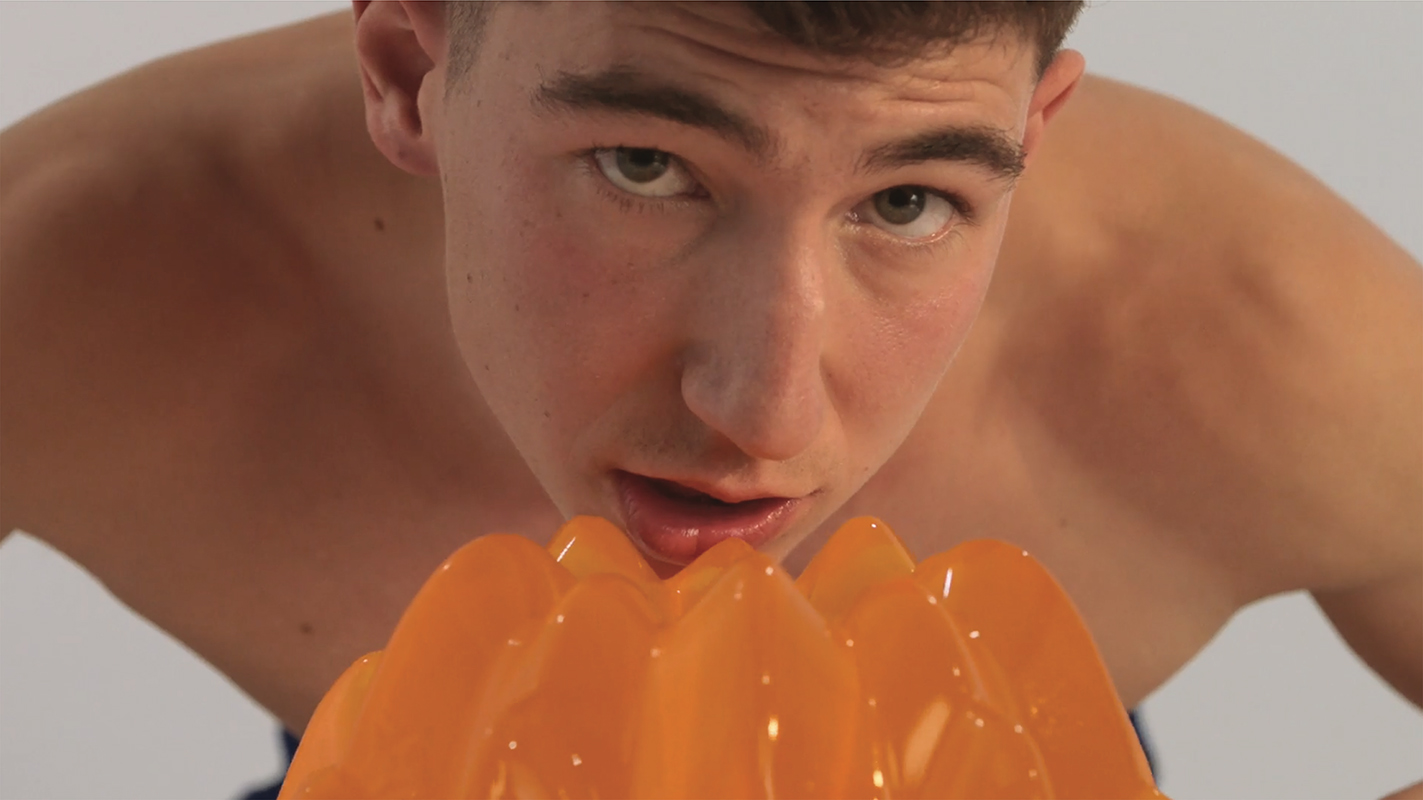
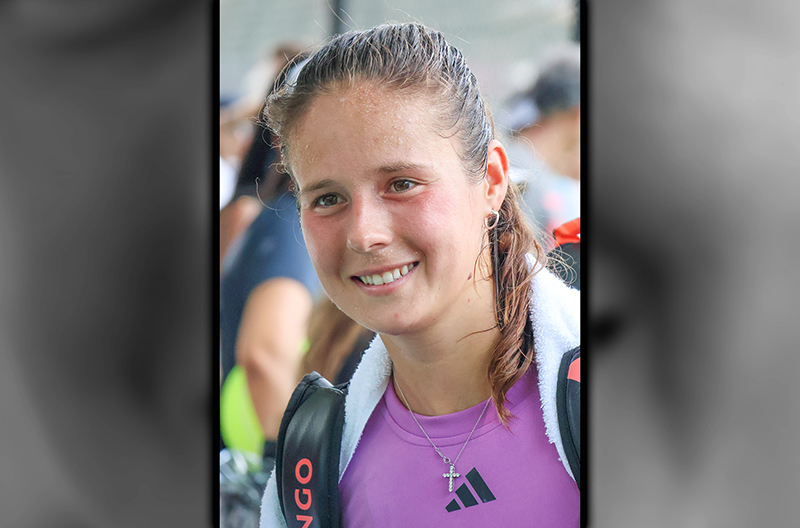














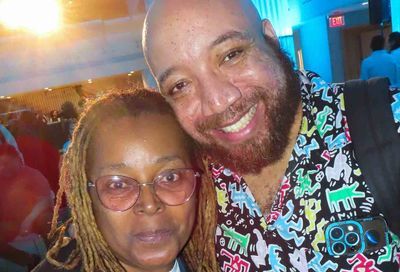
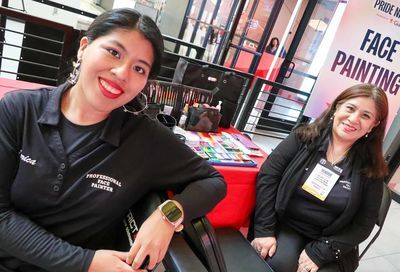
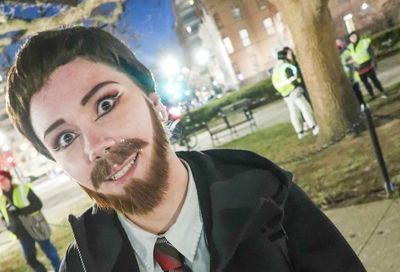
You must be logged in to post a comment.